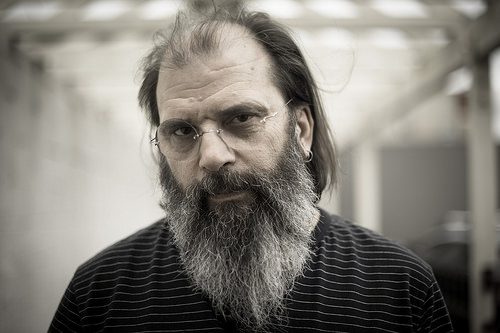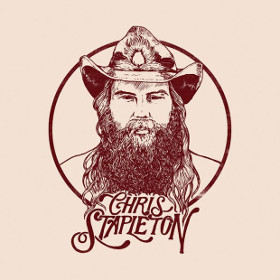Editor’s Note: I wrote “my” instead of “Country Exclusive’s” for a reason; this does not necessarily reflect the views of our entire site. Also, these are not, and I repeat, not, in any order. Finally, with the exception of one song which I felt it would be idiotic to leave out, these are all from stuff we have covered in some fashion, either by a full-length review or perhaps through a feature in our “Memorable Songs from Overlooked Albums” pieces. Normally, I would restrict this to stuff one of us has actually written about, but that would leave out one song which, like I say, it would be a glaring sin not to bring up here. So take all this into consideration, and feel free to leave your own lists of songs and thoughts about these in the comments below!
Aaron Watson: “Clear Isabel”
From Vaquero
The first song to really blow my mind in 2017, this is a great and timely story about Isabel and her father, Mariano, who flee to America to escape the cartels of Mexico. Isabel ends up married to the narrator of the song, but her father is deported and later gunned down. It’s an honest and heartbreaking look at immigration, not to mention a brilliant song. Even better with the instrumental prelude, “Mariano’s Dream.”
Jaime Wyatt: “Wishing Well”
From Felony Blues
Jaime Wyatt is probably the name I’m most excited about breaking out in 2017. She has a way of singing about hardship that still manages to put a smile on your face, and this is just a stellar song that gets better every time I hear it.
Natalie Hemby: “Cairo, IL”
This one comes off Puxico, which we didn’t review in full, but it was partly responsible for the “Memorable Songs” features because this track about the lonely, forgotten river town of Cairo, Illinois, is one of the best songs of the year and should by no means be overlooked.
Jason Eady: “Barabbas”
From Jason Eady’s self-titled album
Purely from a songwriting standpoint, this has to be the cleverest thing to come out this year, telling us the story of the man freed by the crucifixion of Jesus, yet never mentioning Jesus or religion, and instead allowing the song to be a timeless track for everyone, although connecting even more deeply with those of faith.
Angaleena Presley: “Dreams Don’t Come True
From Wrangled
This just blew me away on the first listen; who’s going to tell you, especially at the beginning of their record, that look, dreams don’t come true, and don’t believe anyone who says otherwise? But it’s Angaleena Presley’s reality, and credit her for confronting it head-on to deliver us something so powerfully painful and honest.
Angaleena Presley: “Wrangled”
Also from Wrangled
Angaleena Presley has the distinction of being the only one on the list with two entries, but this song is equally deserving. From the wonderful melody to the thought-provoking lyrics about being “wrangled” by her life and husband, this song stands out just as much as “Dreams Don’t Come True.”
Brad Paisley: “Gold All Over the Ground”
From Love and War
What, a mainstream name like Brad Paisley? Yes, that’s what I said. This is Paisley’s musical adaptation of a poem composed by Johnny Cash in the 1960’s, and they don’t make love songs like this anymore. Between the poetry of Cash and the arrangement of Paisley, it has definitely earned its place among the best songs so far in 2017.
Colter Wall: “Kate McCannon
From Colter Wall’s self-titled album
There were many outstanding songs on Colter Wall’s debut record, I just picked the one that shined a tiny bit brighter than the rest.
Chris Stapleton: “Either Way”
From From a Room, Volume 1
I didn’t always think Chris Stapleton showed emotion on his new album–sometimes he just belted songs, and they lost a little of the passion. But this is one moment where he absolutely killed it, and this version might be better than the original LeeAnn Womack version.
The Steel Woods: “Straw in the Wind”
From Straw in the Wind
What a dark, ominous tale–this one comes from one of our collaborative reviews, and Brianna and I both agreed that this story of a town where strangers “disappear like straw in the wind” is a standout of the record.
Jason Isbell and the 400 Unit: “If we Were Vampires”
Yeah, here’s the one I didn’t review, but this is one of the best songs of Isbell’s career, and when I said they don’t make love songs like that anymore about Paisley’s, I guess Isbell proved me wrong. He mentions all the details he loves about his wife, and more than that, he makes you think of death as a gift because it allows you to be a better lover and make the moments last. What a beautiful and morbid picture of love; I’ve never been sad, happy, and scared while listening to a love song before, but that’s what Jason Isbell does here.
Kasey Chambers: “Jonestown
From Dragonfly
The standout of Chambers’ recent double album, this one deals with hardship and discrimination and tells a great story. Probably the most underrated and least known one on the list.
Trisha Yearwood: “Maggie’s Dream”
This one is from the Gentle Giants album, and like I said before when I mentioned this song, I don’t care that it’s a cover, it’s still one of the best songs of the year. Trisha Yearwood delivered a better rendition of an already great song, and she’s earned her place on this list.
Honorable Mentions
- Jason Eady: “Black Jesus”
- John Moreland: “Love is Not an Answer”
- Lauren Alaina: “Same Day, Different Bottle”
- Zac Brown Band: “All the Best”
- Kelleigh Bannen: “Church clothes”
- Rhiannon Giddens: “Better Get it Right the First Time”
- Sam Outlaw: “Everyone’s Looking For Home”

